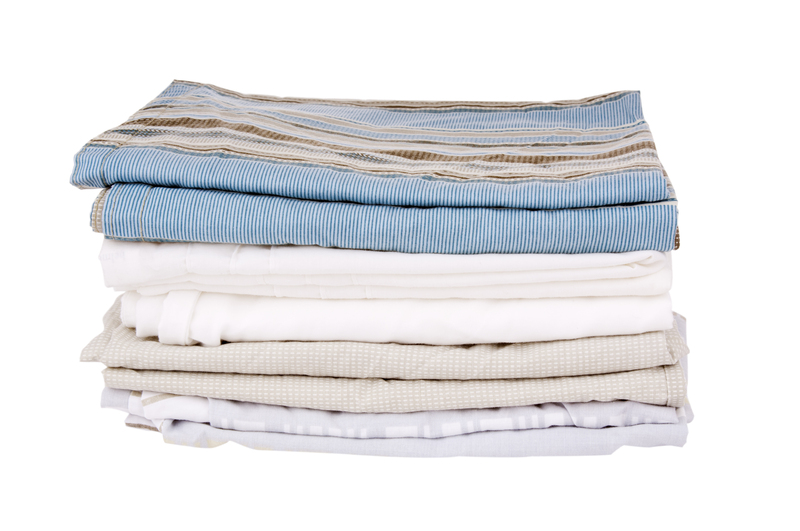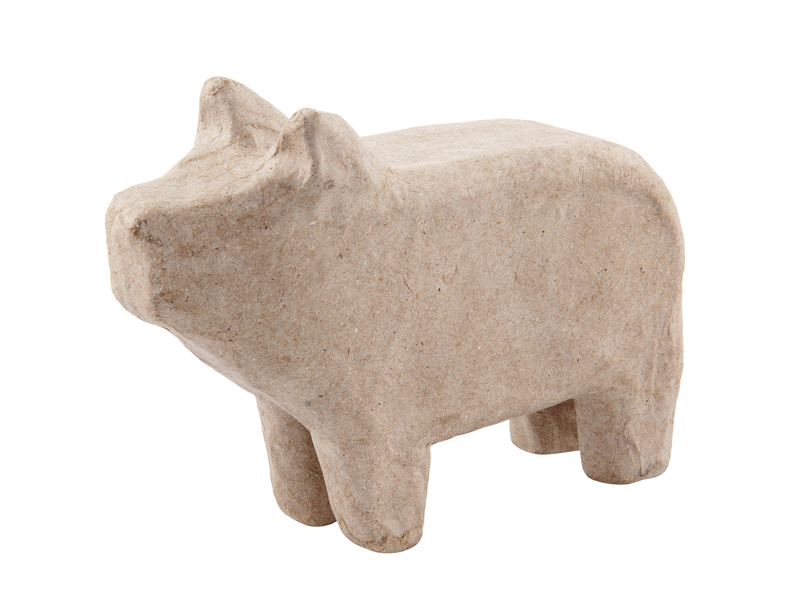Convenient Strategies for Plant Pot Disposal
Each year, millions of plant pots make their way into gardens, balconies, and green spaces across the globe. But when plants outgrow their containers or the pots themselves become worn or broken, responsible plant pot disposal becomes important for minimizing environmental impact. If you've accumulated a collection of used or unwanted flower pots, you might be wondering: What's the most convenient, environmentally friendly, and effective way to dispose of them?
In this comprehensive guide, we'll explore several convenient strategies for plant pot disposal. Whether they're plastic plant pots, ceramic containers, terracotta, or biodegradable options, you'll discover practical tips for decluttering your space, supporting sustainability goals, and potentially helping your community of fellow gardeners.
Why Is Proper Plant Pot Disposal Important?
Improper disposal of plant pots can contribute to overfilled landfills, environmental pollution, and wasted resources. Many plant containers are made from single-use plastics or non-biodegradable materials. By choosing the right disposal method, you can:
- Reduce landfill waste
- Support recycling efforts
- Encourage reuse and community sharing
- Minimize environmental harm
Now, let's uncover the most convenient strategies for disposing of unwanted plant pots.

1. Reuse and Repurpose Plant Pots
Before considering disposal, consider creative strategies for reusing or repurposing plant pots. This is often the simplest and most environmentally friendly approach.
Ideas to Reuse Plant Pots:
- Plant New Seedlings: Use old pots to propagate cuttings or germinate seeds, especially during springtime gardening.
- Organize Tools or Supplies: Smaller pots are perfect for storing garden tools, markers, or seeds in your shed.
- Craft Projects: Get kids involved by painting and decorating plastic or terracotta pots for fun projects or gifts.
- Layered Planters: Stack old pots to create vertical gardens or unique garden displays.
- Edible Arrangements: Use clean containers for growing herbs, lettuce, or microgreens on a kitchen windowsill.
Tip: Sometimes, even cracked pots can be broken further and used as drainage in larger plant containers or as landscape mulch.
2. Donate Usable Plant Pots
If you're out of space or simply want to declutter, donating gently-used plant pots is a convenient way to extend their lifespan and support your local gardening community.
Where to Donate Plant Pots:
- Community Gardens: Many community projects welcome donations of plastic and ceramic pots for new plantings.
- Schools and Educational Centers: Science classrooms often need containers for horticulture projects and experiments.
- Botanical Gardens: Check with your local garden--many run reuse programs or accept pots for volunteer projects.
- Social Media Groups: Local gardening groups on Facebook, Nextdoor, or Freecycle are excellent platforms for giving away surplus pots.
- Charity Thrift Stores: Nonprofits sometimes accept ceramic, terracotta, or decorative pots in good condition.
Note: Clean your pots before donating to prevent the spread of pests or plant diseases.
3. Find Local Plant Pot Recycling Programs
One of the most effective strategies for plant pot disposal is to recycle them, but it's important to understand local rules and options. While many municipalities do not accept certain types of garden plastics curbside, specialized programs exist for recycling these materials responsibly.
How to Recycle Plant Pots:
- Contact Local Recycling Centers: Ask if they accept #5 polypropylene or #2 HDPE plant containers. Refer to the recycling symbol on your pots for guidance.
- Nursery Take-Back Programs: Many garden centers and nurseries operate plant pot recycling programs--simply return your pots when you shop for new plants.
- Municipal Special Collection Events: Look for spring or autumn community recycling days that include plastic plant pot drop-offs.
- Large Retailers: Chains like Lowe's and The Home Depot in some countries offer collection bins near the garden center for empty pots and trays.
Important: Always remove any plant debris, labels, and soil before recycling. Dirty pots may contaminate the recycling process and be rejected for landfill instead.
4. Biodegradable and Compostable Plant Pot Options
As gardening trends shift toward sustainability, biodegradable plant pots are gaining popularity. These eco-friendly containers--made from coir, peat, wood fiber, or pressed cardboard--offer a natural alternative for short-term use.
How to Dispose of Biodegradable Pots:
- Composting: Most pulp, bamboo, or paper-based pots can be added to your household compost bin, where they break down into organic matter.
- In-Garden Planting: Many biodegradable pots can be planted directly into the soil or a larger pot, minimizing transplant shock and waste.
- Municipal Organic Waste Collection: Some cities accept compostable plant pots with yard waste pickup--always confirm local guidelines.
Note: While these pots are convenient to dispose of, they're best suited for seedlings and short-term use--not for multi-year plantings.
5. Proper Disposal of Non-Recyclable Plant Pots
Certain plant pots--especially those made from low-grade plastics, glazed ceramics, or composite materials--cannot be recycled through traditional channels.
Disposal Strategies:
- Landfill: As a last resort, dispose of broken, heavily contaminated, or non-recyclable pots in your regular trash bin. This should be your least preferred option.
- Art & DIY Projects: Use shards of ceramic or old plastic pots in mosaic art, stepping stones, or as bases for landscape sculptures.
Be mindful that some plastics may take centuries to decompose, so only use landfill disposal if all other plant pot disposal methods fail.
6. Choosing More Sustainable Plant Pots for the Future
The best way to make plant pot disposal easier in the long run is to be conscious of the types of plant pots you purchase. Sustainable options can greatly reduce the need for wasteful disposal down the track.
Tips for Making Sustainable Choices:
- Shop for Pots Made from Recycled Materials: Many brands now offer containers made from recycled plastic or post-consumer fiber.
- Invest in Durable Pots: Terracotta, metal, and heavy-duty resin pots have a longer lifespan and are less likely to require frequent replacement.
- Opt for Biodegradable or Compostable Pots: For short-term plantings or seedlings, these are the most eco-friendly.
- Ask About Return and Take-Back Programs: When buying plants or pots, choose retailers who support recycling and reuse initiatives.
- Minimalist Gardening: Buy only as many pots as you need, and avoid accumulating extras.
7. Frequently Asked Questions About Plant Pot Disposal
Are plant pots recyclable?
Answer: It depends on the type of material. Many plastic plant pots--especially those labeled with recycling codes #2 or #5--can be recycled through special plant pot recycling programs. However, glazed ceramics and very low-grade plastics are typically non-recyclable.
Can broken pots be reused?
Yes! Broken terracotta or ceramic pots can be used as drainage material at the bottom of new planters, or as garden mulch. Be creative and think of ways to re-purpose what you can before considering disposal.
How should I clean plant pots before donating or recycling?
- Remove soil, plants, and debris.
- Wash pots with mild soap and water.
- Soak in a solution of 1:10 bleach to water for 10 minutes to disinfect.
- Let pots dry completely before donating or recycling.
What are the most eco-friendly plant pots?
The most eco-friendly options are biodegradable pots made from coir, peat, pressed cardboard, or coconut husk. Durable ceramic and recycled plastic pots also offer sustainability by lasting for decades with proper care.
Summary: The Best Strategies for Convenient Plant Pot Disposal
With a little creativity and planning, plant pot disposal can be sustainable, convenient, and hassle-free. Here's a quick recap of the best methods:
- Reuse plant pots within your home and garden whenever you can. Repurpose creatively!
- Donate usable pots to local schools, community projects, or via neighborhood sharing groups.
- Recycle eligible pots at garden center take-back bins or municipal drop-off events.
- Compost biodegradable options or plant them directly in your garden.
- Dispose responsibly of non-recyclable pots, reserving landfill as a last option.
- Choose sustainable plant pots for future purchases, and support brands or retailers with recycling programs.
By adopting these convenient strategies for disposing of plant pots, you'll help the environment, organize your space, and contribute to a more sustainable gardening culture for everyone.

Bonus: Quick Reference Table for Plant Pot Disposal
| Type of Plant Pot | Best Disposal Method | Notes |
|---|---|---|
| Plastic (#2, #5) | Recycle (via special programs) | Check local or nursery recycling options |
| Broken Ceramic/Terracotta | Reuse for drainage or decorative mulch | Cannot be recycled in most areas |
| Biodegradable (coir, pulp) | Compost or plant directly | Avoid landfill - breaks down naturally |
| Glazed Ceramic/Non-Recyclable Plastic | Landfill (last resort) | Try to repurpose creatively first |
| Metal or Fiberglass | Donate or scrap metal recycling | Long lifespan, often reusable |
Conclusion: Embrace Sustainable Plant Pot Disposal
You don't have to send unwanted plant pots straight to the trash. With these convenient disposal strategies, you can make eco-friendly choices that benefit your garden, your community, and future generations. Whether you opt to reuse, recycle, donate, or compost, every effort counts towards a cleaner, greener planet. Start today and turn your plant pot disposal into a win for both your home and the environment!